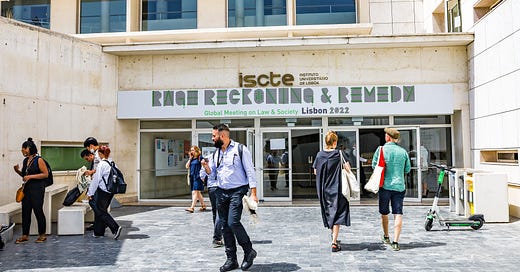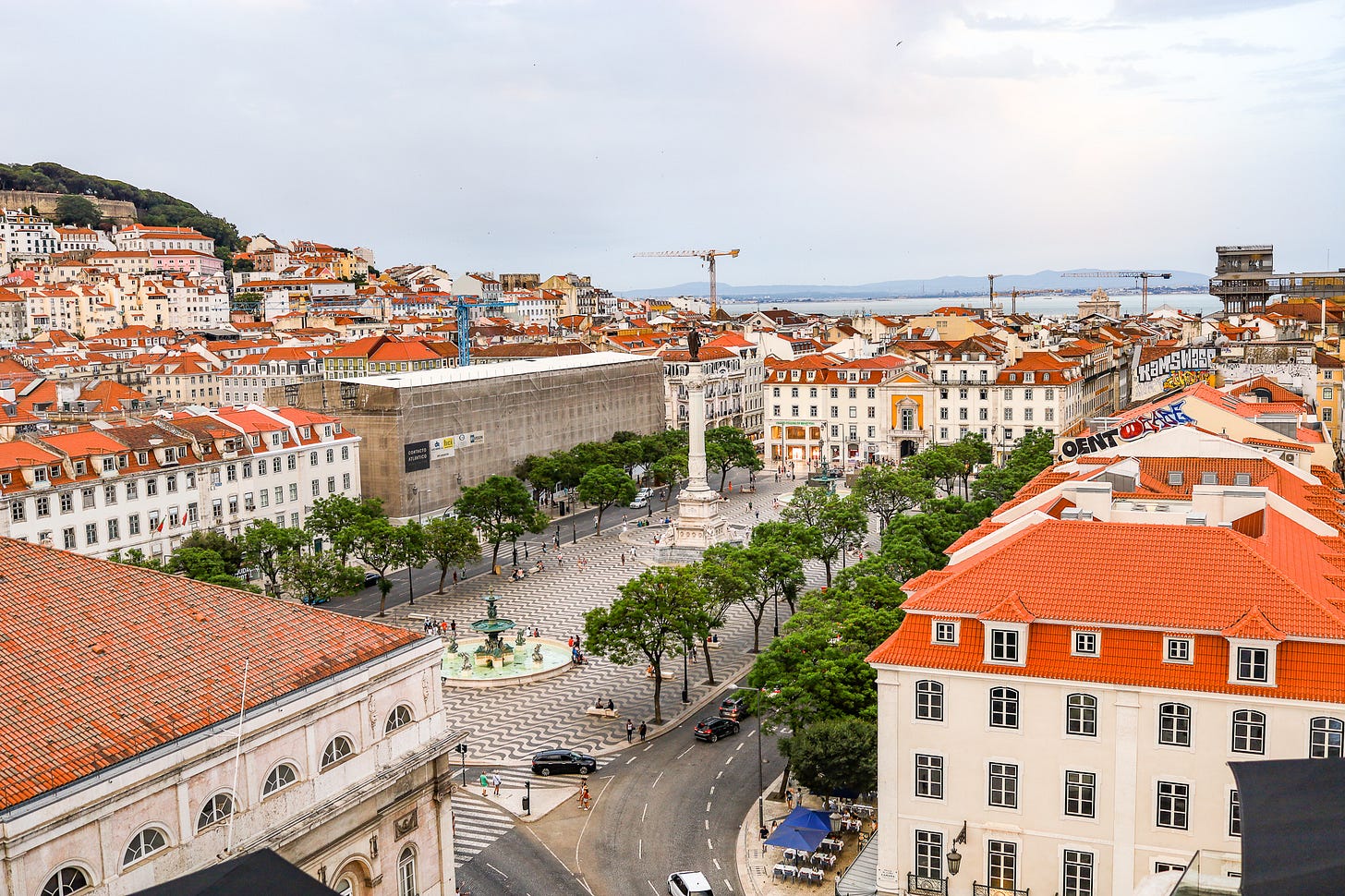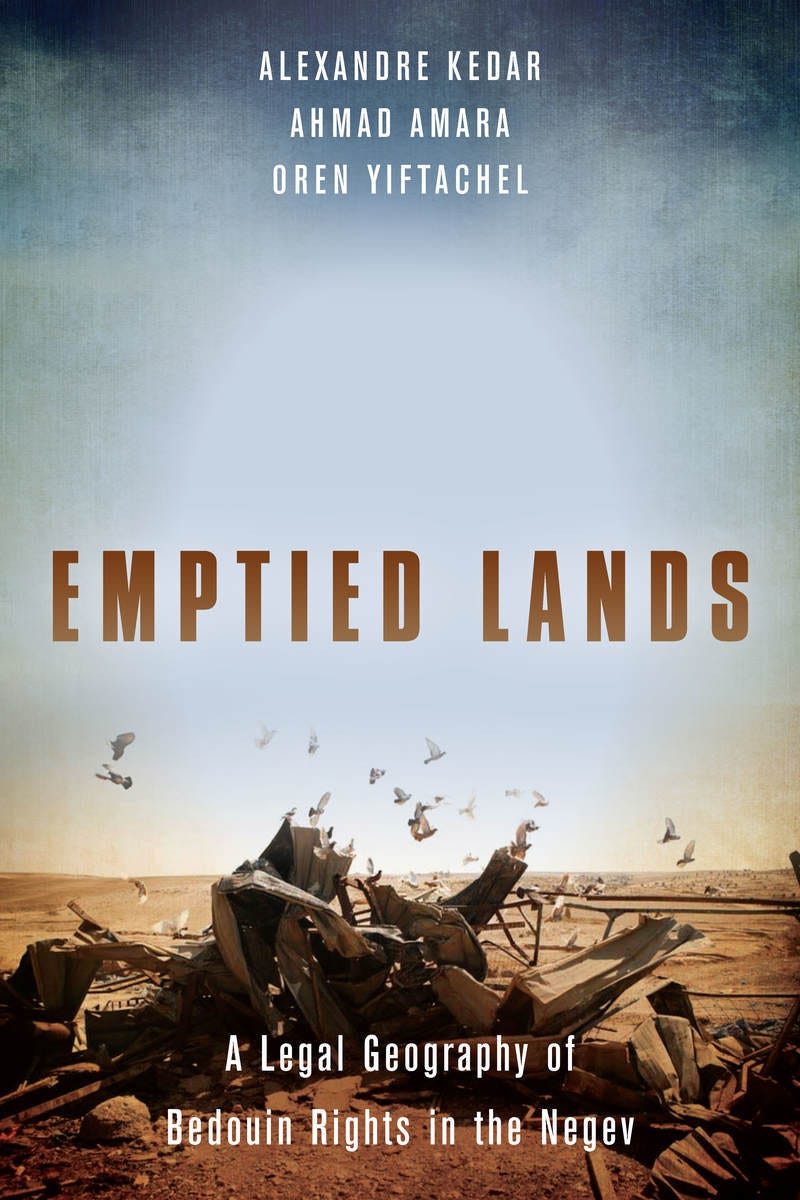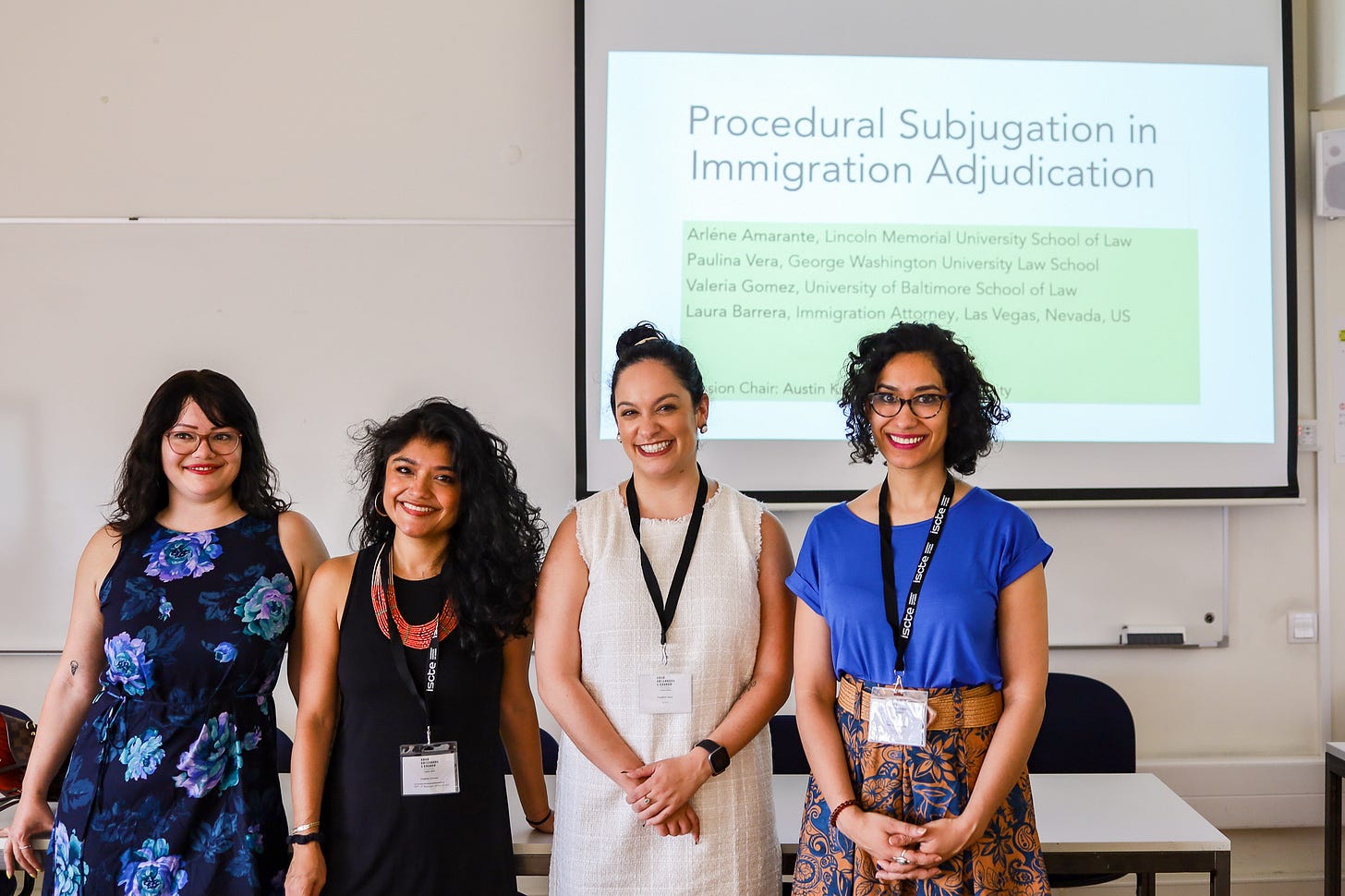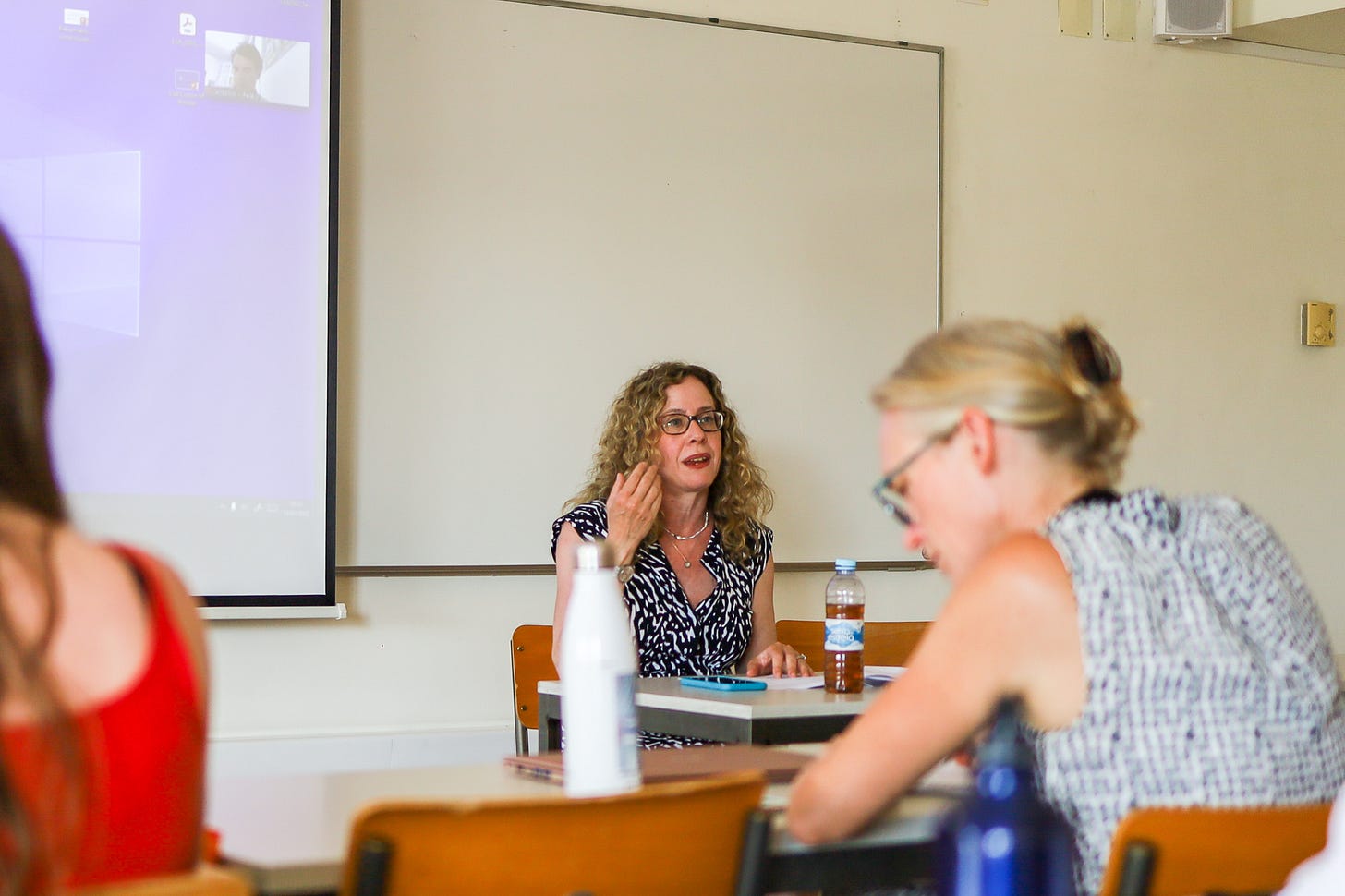Thinking Deeply About Law in Lisbon
Fieldnotes from the Law and Society Association conference, which took place this week in Lisbon, Portugal.
When I was a graduate student neck-deep in fieldwork on local immigration enforcement policies, the Law and Society Association (@law_soc) conference was a revelatory experience as a place where interdisciplinary views on the law were welcomed and encouraged.
The LSA conference brings together a diverse range of students, scholars, attorneys, policy makers, and others who share an interest in how the law works in the real world, and how we can think critically and imaginatively about law in ways that the everyday demands of lawyering do not always permit. The old saying goes that “law is too important to be left to lawyers”—to which I would add, “but it doesn’t hurt to have a few critically-minded attorneys around, as well.”
As a geographer who studies the law (learn more about legal geography here), the conference is one of the ways that I get inspired by fresh ideas, get exposure to new research projects, and get feedback on my own work—not to mention catch up with old and new friends.
This year’s LSA conference was in Lisbon, Portugal. As part of a commitment to including voices from beyond the United States, the LSA holds an international conference every few years. This year’s conference title was “Rage, Reckoning, and Remedy” and hosted by the University Institute of Lisbon.
Before I share some highlights from the conference, I am happy to report that the rumors are true: Lisbon is beautiful. Although I should add, its beauty and a recent influx of euros is also leading to tremendous urban change which is symbolized by an abundance of construction cranes across the skyline.
Legal Geography Pre-Conference
Sandy Kedar and other members of the Legal Geography Collaborative Research Network (or “CRN” in LSA terms) hosted a stimulating pre-conference. One of the central themes concerned how to better connect scholars across institutions who are working on issues of law and space.
Just a few years ago, I was fortunate to be a small part of the creation the Legal Geography Specialty Group within the American Association of Geographers, which means we are now in a position to better connect across these two groups. Plans are underway currently for new virtual workshops and future conference sessions at the AAG conference in Puerto Rico next year.
Sandy, by the way, is one of the coauthors of Emptied Lands: A Legal Geography of Bedouin Rights in the Negev, which is not only a fascinating read, but also provides a great introduction to anyone interested in learning more about the kinds of questions that fall under the legal geography umbrella.
“Emptied Lands investigates the protracted legal, planning, and territorial conflict between the settler Israeli state and indigenous Bedouin citizens over traditional lands in southern Israel/Palestine.”
Procedural Subjugation
One of my favorite experiences was having the honor to chair a session on ‘procedural subjugation’ with four outstanding Latina (#Lawtina) attorneys and professors who discussed the various ways in which the routine mechanics of immigration law disadvantage and hurt immigrant clients. This workshop was interesting to me because one of the threads running through my own work is an interest in how law is navigated, experienced, and constituted through routine social practices. Getting to hear the expertise and stories from experienced attorneys was illuminating to me personally and stimulated lots of discussion.


The session was the brain-child of Laura Barrera (@abogada_laura, left below), a deportation defense attorney whom I’ve admired for a long time, and included (from left to right): Valeria Gomez (@AbogadaValeria), the incoming immigration clinic director at the University of Baltimore Law School; Paulina Vera (@Pnvera), law professor at George Washington University; and Arléne Amarante, and law professor at Lincoln Memorial University.
By the way, if you’re at a law school and looking for speakers or workshops, consider reaching out to one or all four of these amazing women. The workshop was well-developed and I could see this discussion benefitting law students and professors alike.
Data, Technology, and Justice
If you’ve been following my writing here for the past few months, you know I’ve been interested in the expansion of ICE’s electronic monitoring program. This has somewhat inevitably led me into scholarship on technology, data, and the law more broadly, so I jumped at the chance to see a series of presentations about this topic.
The presenters included: Sarah Stephens (Institute of Development Studies), Antonio Pele (Associate Professor at the Law School of PUC-Rio in Brazil and Marie Curie Fellow at EHESS Paris), Ching-Yi Lui (Graduate Institute of National Development, Taiwan), Caoimhe Evelyn Ring (Oxford University), and Michele Gilman (University of Baltimore law school).
I shouldn’t play favorites, but this session was probably my favorite because each presentation was informative and well-prepared. I think there’s a very real debate right now about whether technology that is adopted under the veneer of justice and equality is actually doing more to reproduce inequality and injustice.
I particularly liked Prof. Gilman’s discussion of digital privacy and the working poor, and her argument for better digital protections for people based on socio-economic status. As she said:
“The consequences of digital privacy is much much higher for lower income people and people of color.” —Michele Gilman
I also found Antonio Pele’s concept of “data necropolitics” provocative and useful, a concept which seeks to capture the ways that data and information technology are—and can be used—as a mechanism for regulating life and death. It’s a hard-hitting argument that I am eager to understand better in his forthcoming book. You can read more about this notion of data necropolitics in a blog post Pele wrote recently here.
New Research on Immigration Enforcement
I was excited to share my recent work with Mario Marset on our historical dataset of 287(g) jurisdictions with Jamie Longazel, Juan Pedroza, Daniel Stageman, and Felicia Arriaga. I’ve been a big fan of Jamie, Juan, and Dan for a long time, so I was honored to finally meet most of them in person even though our session was virtual.
Felicia’s presentation really hooked me because she is investigating the history of immigration enforcement in Puerto Rico. As you may know, Puerto Rico is not only a US territory but also home to an immigration court and an immigrant detention center. Felicia is looking at how this came to be and what it means for a marginalized territory, which already has its own controversial politics, to incorporate US immigration enforcement institutions into its policing infrastructure. I’m excited to see how her work develops.
There is no way to summarize the many excellent immigration-related research presentations I saw, including those by Eunice Lee, Amada Armenta, Chris Levesque, Daniel Stageman (working with Arlana Henry), Evan Criddle, Talia Peleg, and many others. But let’s just say that I’m leaving the conference reinvigorated by the discussions and excited about immigration research.
Join us Next Year in San Juan, Puerto Rico!
If you are in the research world in some way or wish to participate in the LSA conference next year, I hope you’ll make plans now to join us. The conference will be held in San Juan, Puerto Rico (amazing, right!). If you’re nervous about going to your first academic conference, I’ll do my best to give you a more complete picture of how the conference works so you can make an informed decision.
Support public scholarship.
Thank you for reading. If you would like to support public scholarship and receive this newsletter in your inbox, click below to subscribe for free. And if you find this information useful, consider sharing it online or with friends and colleagues.

